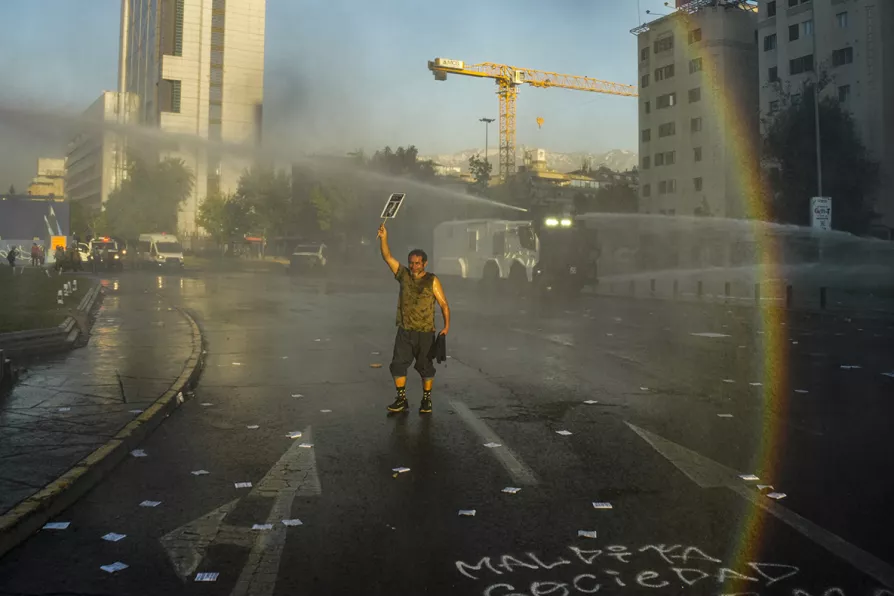HUGH LANNING says there is no path to peace without dismantling Israel’s control over Palestinian land, lives and resources

 A demonstrator shout slogans against police operating water cannons and tear gas to disperse protesters commemorating the fifth anniversary of the most violent riots since the return of democracy in Santiago, Chile, October 18, 2024
A demonstrator shout slogans against police operating water cannons and tear gas to disperse protesters commemorating the fifth anniversary of the most violent riots since the return of democracy in Santiago, Chile, October 18, 2024
FIVE years after the citizens’ revolt in Chile on October 18 2019, which lasted three months, the leading political and institutional organisations distance themselves from the facts, distorting them in an attempt to criminalise the events.
This manifests itself at a time when political parties, the Congress and business sector are experiencing the lowest approval rates in a decade.
The entire judiciary is seen as corrupt, the pension reform has been stopped, the cost of living is out of control. You add to it the grotesque and toxic fights in the political arena and among the elites, while the sky-rocketing salaries of government officials cause indignation and rage. Access to quality healthcare and education continues to be exclusive and expensive.

Communist Party presidential candidate JEANNETTE JARA challenges the Chilean left to stop talking only among comrades and reach out to angry voters abandoned by politics in the race against the far right this November

For the first time in years, the dominant voice within Chile’s official left comes not from neoliberal centrists but from the world of labour, writes LEONEL POBLETE CODUTTI











